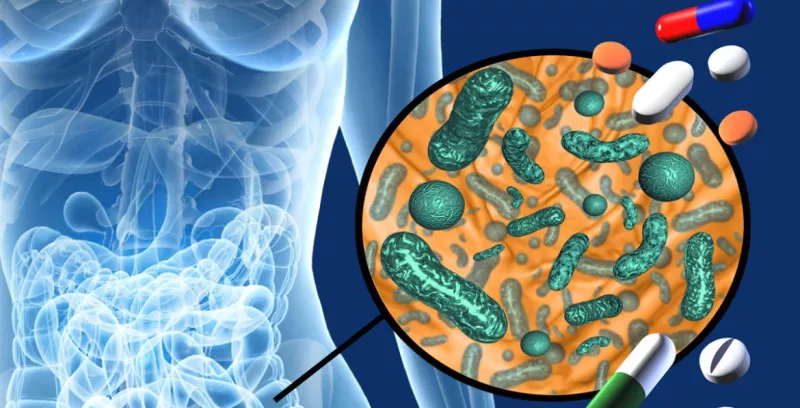You are not alone - each one of us is home to trillions of microbes that have a widespread impact on our physiology and predisposition to disease.
Our lab studies the role of these microbes in two major areas: pharmacology and nutrition. We use a variety of inter-disciplinary approaches ranging from the molecular (biochemistry, bacterial genetics, structural biology) to the organismal (gnotobiotic mice, conventional animals, and human cohorts) to the ecological (synthetic microbial communities and metagenomic sequencing).
To accomplish these ambitious goals, we collaborate closely with researchers from disparate fields, in particular within the rich network of microbiome labs in the Bay Area and across the University of California system.
Read more about our ongoing research projects below:
Pharmacology and Precision Medicine: Although the importance of human genetic polymorphisms in therapeutic outcomes is well-established, the role of specific genotypic or copy number variants in our “second genome” (the microbiome) has been largely overlooked. Our research group takes a microbiome-centric approach to pharmacology, working to elucidate the direct and indirect mechanisms through which the human microbiome shapes the efficacy and toxicity of small molecule and biologic therapies. For example, we have used [meta]transcriptomics to identify bacterial genes involved in the metabolism of host-targeted drugs and antibiotics. The challenges for the next 5 years and beyond are many, requiring inter-disciplinary scientific teams working at the interface of chemistry and biology, and a consideration of far more variables than traditionally included in pharmacological modeling. However, the potential benefits are immense. Continued progress could enable more precise tools for predicting patient responses and the development of a new generation of therapeutics based on, or targeted at, the human microbiome.
Nutrition and Metabolic Syndrome: In the words of my thesis advisor, Jeffrey Gordon, “No one ever dines alone”. Our research group is fascinated by the major role diet plays in shaping the gut microbiome and the ability of gut microbes to contribute to the digestion and metabolism of dietary substrates relevant to host health and disease. We have conducted a series of dietary interventions in human subjects and animal models. In humans, we found that the consumption of diets composed entirely of animal or plant products alters gut microbial community structure within days, overwhelming pre-existing inter-individual differences in microbial community gene expression. Studies of captive and wild mice suggest that diet has a dominant impact on the gut microbiome, even outweighing differences in host genetics and other environmental factors. Current projects in our lab are focused on understanding the mechanisms linking diet to the gut microbiome, with the long-term goal of designing rational nutritional interventions to improve the treatment of human disease.

